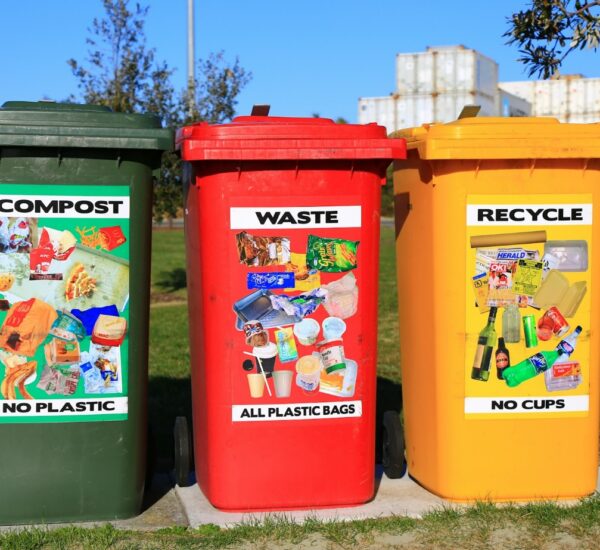There is no quick and easy way to determine what size dumpster you’ll need. The provider will need to know what kind of materials you’ll be disposing of as well as how much. It boils down to the weight of the load that the dumpster can take. 10 cubic yards of aluminum siding will weigh a lot less than 10 cubic yards of driveway concrete.
Other Cost Factors
Of course there is more to renting a dumpster than just renting a dumpster. There are some things you and the supplier will need to know about the project before figuring out the price.
Length of Rental
How long do you intend to keep the unit for? Most companies list their prices by the week. Generally, dumpster companies don’t discount if you only need it for a day or two. This is because the cost of delivering, picking up, and emptying the container are the same for the company no matter how short a time you have it. However, if it’s during a high demand time (usually after the rainy season and right before the heat of summer), the company may be willing to offer a small discount to get their dumpster back into circulation sooner. It never hurts to ask!
If you need a dumpster for longer than a week, of course there will be an extra charge. However, since the unit is already delivered, that extra week might not cost you the same price as the first week. Some companies charge $5.00 to $10.00 per day after the first week.
Availability
Not every provider will have every size dumpster available for your area, even within the same company. They may have the 10, 20, and 30-yard dumpster available in an area with lots of residential units, but have the 40 and 50-yard dumpsters as well in another community where there are most likely more industrial projects.
Remember that the cost of transporting a dumpster to your home is included in the estimate, but having one sent from another location could cost more. For example, if you really only wanted a 15-yard dumpster but none were available at your local supplier, it might be more cost-effective to get the next size up than to have them bring in a 15-yard dumpster from another location.
Dump Fees
Usually included as part of the cost, dump fees will vary widely depending on your municipality. San Diego, CA, for example, charges about $105.00 for less than 2 tons of construction/demolition waste, but $113.00 for 2 tons or more. Statewide, Idaho averages about $20.00 per ton of waste while Massachusetts averages $110.00 per ton.
Dump fees are usually driven by the free-market economy. Where there is little competition, prices tend to be higher. Where there is private competition, prices tend to be lower as they all scramble to get your business.
Type/Weight of Trash
All trash is not equal. Some is recyclable, some isn’t. Some trash has elements that are considered hazardous. Some trash is heavier, meaning a greater load on the dumpster. The supplier of the dumpster should provide you with a list of what is and isn’t allowed in the dumpster. You can be charged quite a bit extra if you put prohibited items into the dumpster.
Generally, rented dumpsters are used for normal construction/demolition trash. This would include wood, siding, drywall, yard waste, carpeting, wire, foam, flooring and roofing materials, and even small appliances. Prohibited items usually include computers, batteries, automotive fluids, pesticides, paints, and anything that uses Freon (refrigerators and air conditioners, etc.).
Some items may not be specifically prohibited, but they could cost extra. These items include tires, mattresses, and large appliances. Be sure to check with your supplier before loading these items.
Dumpsters are often rated by weight. A typical 30-yard dumpster can hold about 8, 000 pounds of material, or 4 tons. When your dumpster is picked up for emptying (or “tipping” as it is sometime called), it will be weighed at the disposal station. After it has been emptied, it will be weighed again. The difference is the amount of waste that you had put in it. If you exceed the weight of the dumpster’s capacity, you may be charged a per ton overage fee. This is usually $30.00 to $100.00 per ton over, depending on the landfill fees for your location.
Permits
Permits are usually required to place a dumpster. Some communities, such as New Orleans, require a permit if the dumpster is going to be within public view. Others require a permit only if the dumpster is going to be on the public street. Any dumpster that will be blocking a public right-of-way such as a traffic lane or sidewalk will most certainly require permits.
Often, the dumpster service will provide the basic permits required to obtain the dumpster. As long as the company has easy access to where the dumpster is going to be placed, and as long as it’s on your own property, you probably won’t have to get any other permits. Be sure to check with your local codes, first.
In Conclusion
Waste from demolition and renovations can build up quick. Even if you have several friends with pick-up trucks who are willing to help, most such projects can generate a lot of waste and burn a lot of fuel. By renting a dumpster you can save yourself a lot of labor and driving and ensure that everything is done properly right down to the landfill usage.
Was this page helpful?
Thank you for submitting your feedback.




